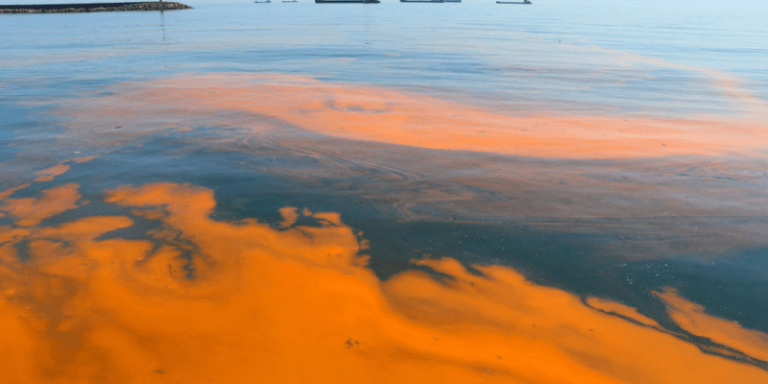Red Tide: No Fun in the Florida Sun
Toxic Red Tide is driving tourists out of Florida.
By: Leesa Donner | November 18, 2019 | 321 Words

(Photo by Mesut Karaduman/Anadolu Agency via Getty Images)
“Mom, can we go to the beach?” Increasingly, the answer is no for those who live and vacation in Florida’s vast Gulf Coast region.
Karenia brevis algae – commonly called “red tide” because its colorful blooms turn coastal water scarlet – is getting more common up and down Florida’s western shoreline, and it’s not pretty. Aside from the smell of death, red tide triggers many negative consequences.
The Tangled Red Web
Sea creatures of all manner, from fish to dolphins, suffocate and die because the algae bloom chokes off the oxygen in the water. The toxins released by the algae are troublesome for humans, as well.
People are exposed in multiple ways that include eating tainted fish, breathing in the toxins that pollute the air, and in some cases, through skin contact. It’s believed karenia brevis can cause neurological problems and make health issues worse for those with respiratory ailments like emphysema. Bottom line: You really don’t want to hang out on a beach with red tide.
The algae is primarily spread by ships, storms, currents, and the wind. And despite millions of dollars that have been poured into trying to stem growth, very few – if any – efforts to prevent the algae have paid off. In fact, the species has exploded 15-fold in the last 50 years. Its spread still troubles scientists and continues to pound the Gulf Coast tourist industry. To make matters worse, experts seem unable to predict when and where this toxic phenomenon will next hit.
No Fun in Florida
Those who usually head to the warmer climate of Florida’s trendy Gulf Coast in the winter stay home as they wait for the red tide to recede. Thus, the algae has cost the state of Florida millions both trying to halt its unwanted appearance and in lost tourism.
Karenia brevis appears to be a mystery that marine experts haven’t yet been able to unravel.
















